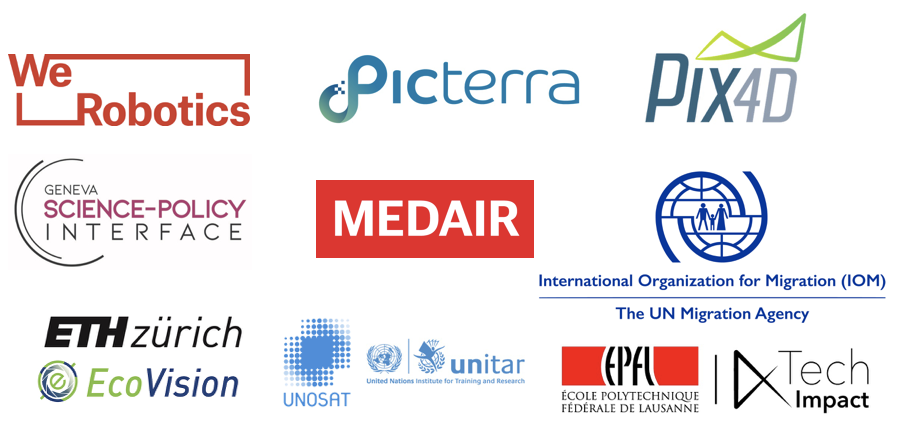How to automate analysis of aerial data in the context of Aid & Development
WeRobotics, Picterra, Pix4D, Geneva Science Policy Interface, International Organization for Migration (IOM), Medair, UNOSAT, UNITAR, ETH Ecovision, EPFL Tech4Impact

Session 250
Evidence and data-based decision making allows for adapted and more efficient solutions for a range of aid & development issues and sectors such as disaster management, conser-vation, agriculture and resilient city planning. Easier availability of geospatial data through satellite and drones provides civil society with an important data source to support evidence-based decision making. However, it also creates a new bottleneck as the challenge has shifted from “no data” to “too much data”. Leveraging AI to support more automated analysis is therefore the next step to take.
In this workshop, we will talk about needs, present use cases of existing solutions and address the current advantages and challenges of using machine learning in conjunction with drone and satellite data, including in environ-mentswith low bandwidth.
Moderator
Sonja Betschart - WeRobotics
Speakers/Panellists
Ms. Sonja Betschart - WeRobotics
Mr. Nicolas Seidler - GSPI
Mr. Frank de Morsier - Picterra
Mr. Timothy Chapuis - Pix4D
TBC - Medair
Mr. Sebastian Ancavil - IOM
Mr. Jan Wegner - ETH Ecovision
TBC- UNOSAT
Ms. Beatrice Scarioni- EPFL Tech4Impact
Session's link to WSIS Action Lines
-
 C4. Capacity building
C4. Capacity building
-
 C5. Building confidence and security in the use of ICTs
C5. Building confidence and security in the use of ICTs
Session's link to Sustainable Development Process
-
 Goal 8: Promote inclusive and sustainable economic growth, employment and decent work for all
Goal 8: Promote inclusive and sustainable economic growth, employment and decent work for all
-
 Goal 9: Build resilient infrastructure, promote sustainable industrialization and foster innovation
Goal 9: Build resilient infrastructure, promote sustainable industrialization and foster innovation
-
 Goal 10: Reduce inequality within and among countries
Goal 10: Reduce inequality within and among countries